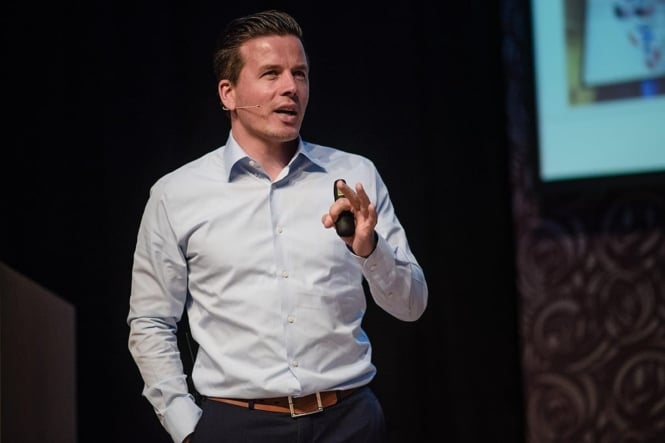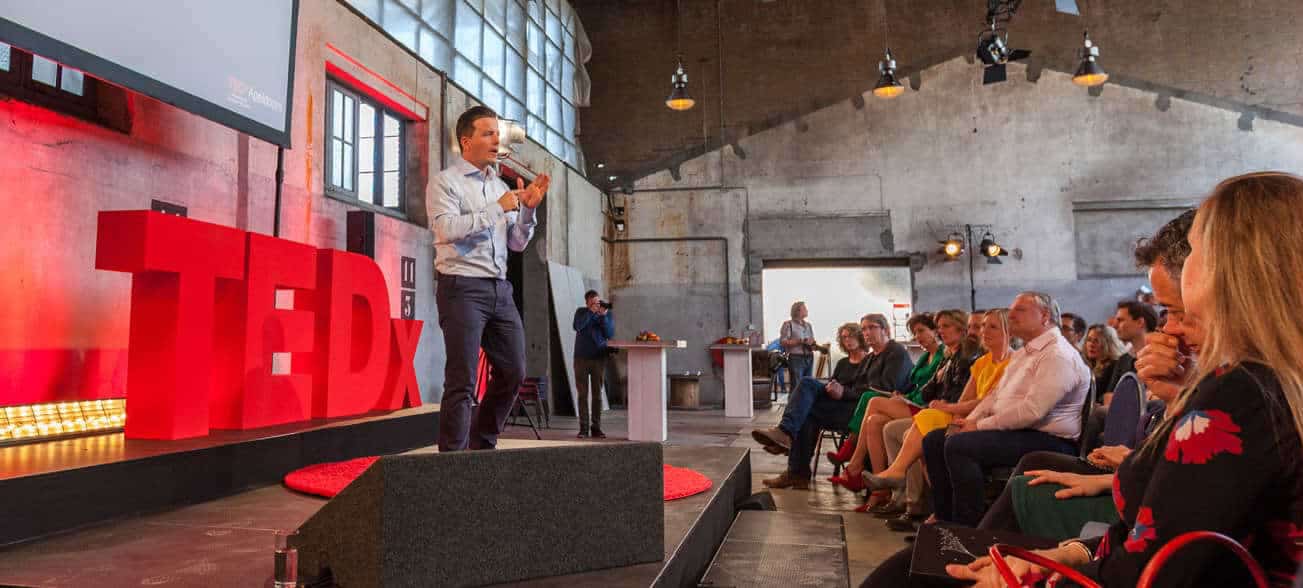Jarno Duursma is a speaker, author and AI expert. He is one of the top speakers in his field.
See below which presentations he can give. He always makes customized talks! Feel free to contact him.
Want to know more about Jarno? Here are all his media appearances. Or take a look at his Wikipedia page.
#### Book a lecture from the top AI speaker in the Netherlands
You read about **Artificial Intelligence (AI)** in the news, you see it everywhere—ChatGPT, DALL-E, Midjourney, Descript, and so on. I’ve been speaking about AI for years and have given **hundreds of lectures** on the subject. So, yes, I know what I’m talking about.
As an AI speaker, I’m deeply familiar with the **rapid advancements** in this space. **Tens of thousands** of people have attended my talks, learning about the impact AI will have on our jobs, our future, and even our daily lives.
Here’s what I cover in my AI talks:
– **How AI will impact jobs** of the future
– **How AI will change your work**
– What does the **future with AI** look like?
– Which companies are already using AI today?
– Why is AI making headlines right now?
– What **AI tools** can you use today?
– What are the **ethical concerns, risks, and drawbacks**?
– What are humans better at than AI software?
– And most importantly, **what can you start doing tomorrow** with AI?
If you’re interested in AI, if you want to know more than you already do, or if you’re looking for someone who can **inspire your audience** and provide a **realistic perspective** on technological advancements, then book my lecture!
—
### What my clients say
**”Sometimes you get lucky and find a speaker who brings the right dynamic energy to your IT meeting. Jarno not only shared the latest IT trends with humor, but also sparked great discussions about the bright and dark sides of increasing automation. He even managed to connect it to our business strategy, making it a truly successful day.”**
– **Ben Vester, Central Agency for the Reception of Asylum Seekers**
**”The webinar on technology’s power during the pandemic is highly recommended. Jarno walks you through the (im)possibilities of technology during COVID-19 in his typical engaging way. You’ll leave with new insights and a full understanding of the topic.”**
– **Bas Baalmans, Digital Business Centre, University of Groningen**
**”In just 45 minutes at our travel conference in Portugal, participants were overwhelmed with examples of AI applications. Jarno’s presentation made it clear: the future has already begun. Excellent presentation!”**
– **Frank Oostdam, Director, ANVR**
—
### Why book me as your AI speaker?
– I deliver an **energetic, compact story** with plenty of **humor**
– My presentations are **up-to-date, clear, and full of examples**
– My talks are **highly rated**—recently scoring **9.4 and 9.6**
– Audiences are **engaged** and often **continue the discussion** long after the event
– I’ve been following AI since **2014** and have given **hundreds of talks** on it since **2015**
– In **2017**, I wrote a book on AI: *The Digital Butler – Opportunities and Threats of Artificial Intelligence*
– I also wrote two reports in 2019: *Deepfake Technology: The Infocalypse* and *Machines with Imagination: An Artificial Reality*
– I’ve published **dozens of articles** about AI since 2015
What I can offer for your event
Tell me about your company, your employees, your clients, and your goals, and I’ll deliver an **inspiring, motivating lecture** tailored to your needs. Whether it’s bringing clients together, energizing your team online, kicking off a creative session, or planning a strategic meeting with management, I can make it happen. Fill out the **quote form**, and I’ll get in touch soon!
















